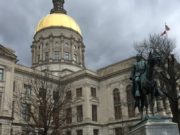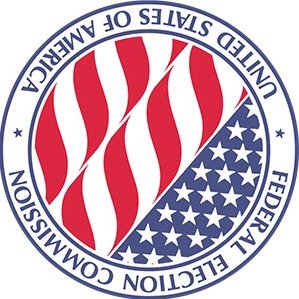Abraham Lincoln, speaking of slavery, famously stated, “A house divided against itslf cannot stand.” I sometimes wonder if something similar does not apply to questions of political censorship. Once we decide that government should start limiiting speech for some reasons, is it really possible to draw lines, other than on blatantly partisan political grounds?
ABC’s “The Path to 9/11” aired its first of two parts on Sunday night, in the face of sometimes intense protest from the politlcal left generally, Democrats in particular, and aggrieved members of the Clinton administration especially. Of course, organized boycotts of programming are nothing new – some will remember the brouhaha over the CBS docudrama “The Reagans” from a few years back. What is alarming here, though, is that at least some Democratic lawmakers are not content with denouncing the film, or supporting consumer boycotts of the film or its sponsors – modes of protest that led the aforementioned Reagan docudrama to be shunted from CBS to Showtime, and which are perfectly legitimate and perfectly consistent with the First Amendment. Some Democratic Senators have gone further and sent a threatening letter to ABC, which might legitimately be perceived by many as suggesting possible legislative retaliation against the network.
This is a very dangerous path indeed, for there is no end to the number of things that can be censored – some might start with Michael Moore documentaries, for example. It is ironic that at the time of the Michael Moore flap, the left prided itself on its tolerance for depictions of historical events that it might not like. As Moore himself said, “That’s the difference between our side and their side. Even when we disagree, we’re respectful of freedom of speech. But when they disagree, they try to shut you down. Well, it’s un-American.” But as we now learn in “The Path to 9/11” flap, maybe the left is not so tolerant after all, if it believes its ox is being gored.
Campaign finance regulators like to say that they only want to keep “big money” out of the system, but complaints against money, like complaints about a network’s “responsibility… as a beneficiary of the free use of public airwaves,” (as the Senators outraged by “The Path to 9/11” put it) are often simply complaints against message. As regards “The Path to 9/11,” we are not hearing Republican Senators complaining that ABC is failing to live up to its “responsibilities…as a beneficiary of the free use of public airwaves,” just as Democrats did not complain about alleged distortions in “The Reagans.” Everything must be paid for somehow, and for any mass distribution, it is likely that there will be corporate funds or other “big money” involved. Campaign finance regulation is easily manipulated to become part of the broader war to censor speech that some do not like.
Once we have decided that some political speech should be limited – whether because of how it is funded, or because it does not tell the viewer whether or not a candidate “authorized” it, or because no one comes on to tell us, “I’m XXX, and I approved this ad” – it is but a short step to broader prohibition. Restrictions on content can quickly and easily expand from “I approved this ad” to judgements about veracity and “balance,” made by the state.
Campaign finance controls are ultimately justified on two grounds. One is that they are needed to prevent corruption. But they are also justified on the need to make sure that some do not “drown out” the voices of others. But to suggest that some voices are being drowned out is to suggest that some speakers – the “drowners” – must be silenced so that others are not drowned out. It presumes that those being silenced by the regulations have differing views than those who are not being restricted. Thus, the restrictions are – for all the protest to the contrary – about content after all; they are about the belief that campaign expenditures can change political debate, and hence which public policies are enacted. The problem, in this formulation of the “reformist” argument, is not that campaign contributions and expenditures are bribes, but that the speech they fund might be effective in influencing voters. And in this respect, it is not a coincidence that the law regulates efforts to “influence an election,” not efforts to “influence a legislator.”
Having decided, through our campaign finance laws, that some speech can be censored or limited, battles will quite naturally arise over what might be censored; who is being “drowned out”? Is that the only reason to limit speech, or are there others? Why should Michael Moore be able to distribute a documentary, Fahrenheit 9/11, that might “influence an election,” but another speaker not be allowed to pay to air a similar commercial on television? Why should Disney be able to produce, and ABC to air, a docudrama that clearly might “influence an election,” and which production is far beyond the means of most Americans?
This is a dangerous game, this campaign finance regulation. The urge to censor is usually whetted, not satiated, by censorship. The so-called “reformers” – “regulators” is a better term – have other targets in their sites: 527 and 501(c) organizations to start. Down the road, still more targets loom, including, eventually, the press – such as ABC. Such respected and influential academic commentators as Rick Hasen of the blog Election Law, Georgetown Professor Mark Tushnet, Yale Law Professor Owen Fiss, and Edward Foley, former Ohio State Solicitor and now Director of Election Law at Moritz, the Ohio State University Law School’s highly respected election law program, have all called in recent years for outright censorship of the press in order to “equalize” political debate.
Should “The Path to 9/11” be aired? I don’t like “docudramas.” I don’t like “dramatizing” history. But this issue is much bigger than “The the Path to 9/11,” and certainly as threatening to our civil liberties as actions taken in the war on terror and criticized as “going too far.”
Ultimately, political speech in the United States cannot exist have censored, half free. Once we have torn down the walls protecting free speech, it is unlikely we can somehow isolate the targets of our disdain. We will either censor speech, with those able to seize and wield political power most effectively in charge of the censoring, or we will tolerate a free market in political speech. But as Lincoln said, “a house divided against itself cannot stand.”














